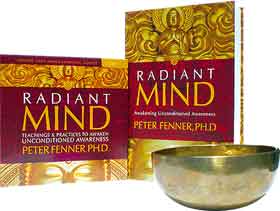Buddhism captured my attention over 40 years ago when I was a university student. The idea that our needs and preferences are the source of our suffering made immediate sense at an intellectual level. Having what we don’t want, and not having what we do want, is the recipe for all our pain, upset and dissatisfaction. If we can free ourselves from the ‘need’ for things to be different, or to stay the same, we have discovered a state of unconditional freedom. This is what is meant by the term ‘nirvana.’ It is the state where nothing needs to be different.
We make huge demands on the environment
It seems we are relatively incapable of ‘just being with ourselves,’ simply sitting and being with ‘what is.’ Instead we need to be entertained, amused, distracted or unconscious. The external resources that are required to keep us just marginally content are quite phenomenal. We spend enormous amounts of money on our appearance: wearing the right clothes, trying to look young and attractive. In some weird way we expect to be in optimum health, right up until the moment of our death!
The alternative is to discover how we already have everything that’s needed to be fulfilled in the most comprehensive way possible. There are hundreds of thousands of great spiritual masters throughout the ages that have shown us that this is possible. There are sages who lived in ‘great bliss’ in severe environments without any heating or air-conditioning, without the latest gadgets, and without the security of knowing that quality medical care was close at hand.
The ultimate benchmark that these sages offer us is the possibility of making the journey through aging and dying without losing a connection with the supernal bliss of unconditioned awareness. For these sages, death itself was a non-event. As the 16th Karmapa of Tibet said on his deathbed in 1981, ‘nothing happens.’”
Present moment awareness gives us everything we need
We can make our own experiment right now. Here we are. How do we discover, first-hand, the very same reality that allowed the sages of the past and present to remain unperturbed in the face of the very same experiences that throw us into confusion, obsession, anger or fear? How do we remain unperturbed and tranquil in the face of the inevitable challenges that arise in life: changes in our fortune, our health, the loss of loved ones and ultimately the loss of everything we know at our death?
The remarkable news is that nothing is needed in order to make this discovery. We don’t need ‘more time,’ to be somewhere else, or receive a superior teaching. All that’s required is to see that “in the moment” we have everything that’s needed to be fulfilled. In this moment we don’t need anything more. We don’t need more money, a different body, a different partner—not in this very instant.
This moment gives us everything we need. That’s the magic of the moment. We don’t need to be entertained, right now—enough is happening. We don’t need a flashy car—we’re not in it! In this moment, we don’t need a different standard of living, or a better return on our investments—we are clothed, fed and comfortable. We have everything we need, in order to rest with ‘what is.’
The beauty of this moment is that it’s effortless and uncontrived. The magic of this moment is that it’s ungraspable and ineffable. We can’t hold onto any particular moment. We can’t say what ‘this’ moment is. It leaves without a trace or history. We can’t think about ‘this’ because there is nothing to think about. This is exactly what the sages mean when they say that ‘this’—the ultimate reality—is indescribable.
And now we can also see that if we are ‘here’ at the moment of our death, we have no fear. If we were to remain in this state, our death would be uneventful. The process of dying is nothing more than a continual letting go of everything at the conditioned level: our body, our friends, our possessions, our memories—in fact, the entire known world. At our death we say goodbye forever, to everything that we know and we never return. If we are here—resting in unconditioned awareness—everything can drop away with no grasping or attachment.”
If you look at it, everything we do is ultimately aimed at being here. Even if this recognition only lasts for a few moments, in these moments the work is done. We’re abiding in the ultimate state. We’re resting in the state that’s the ultimate goal of all human endeavours in every field. From conducting wars, to entering into relationship, to trying to make a billion dollars, whatever it is, it is all aimed at being here. And here we are at that point, at least in this moment. There is nowhere further to go. And what’s so incredible is that it’s not even an accomplishment.
Peter Fenner, Ph.D.
Peter is a leader in the adaption and transmission of Asian nondual wisdom worldwide. He is a pioneer in the development of nondual therapy and creator of the 9-month Radiant Mind Course® (www.radiantmind.net) and the 10-month Natural Awakening: Advanced Nondual Training (www.nondualtraining.com). He was a celibate monk in the Tibetan Buddhist tradition for 9 years and has a Ph.D. in the philosophical psychology of Mahayana Buddhism. He teaches in North America, Europe, Israel, India, Australia and New Zealand. His books include Radiant Mind: Awakening Unconditional Awareness (2007); The Edge of Certainty: Dilemmas on the Buddhist Path (2002); and The Sacred Mirror: Nondual Wisdom and Psychotherapy (ed. with John Prendergast and Sheila Krystal, 2003).



